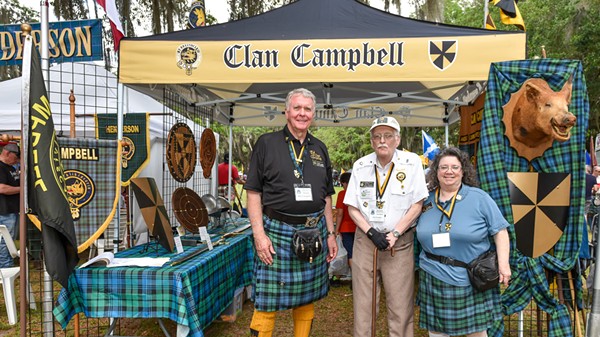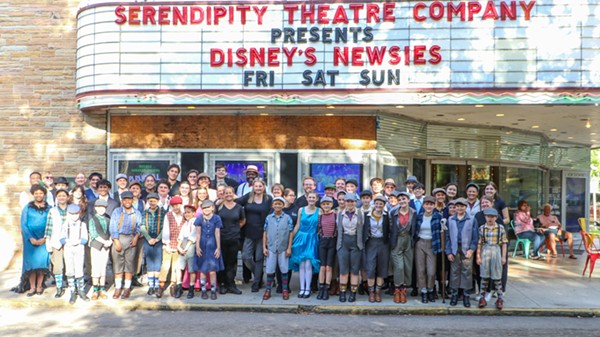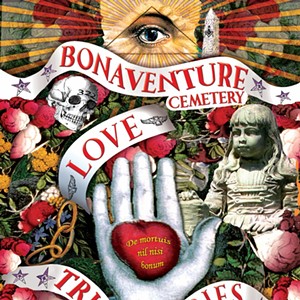It's just a flat-top guitar and some songs
[
{
"name": "Air - MedRect Combo - Inline Content 1",
"component": "14680855",
"insertPoint": "7",
"requiredCountToDisplay": "5",
"parentWrapperClass": "fdn-ads-inline-content-block"
},{
"name": "Air - MedRect Combo - Inline Content 2",
"component": "14680856",
"insertPoint": "15",
"requiredCountToDisplay": "9",
"parentWrapperClass": "fdn-ads-inline-content-block"
},{
"name": "Air - SVP - Leaderboard - Inline Content - 2",
"component": "16852291",
"insertPoint": "10",
"requiredCountToDisplay": "10",
"parentWrapperClass": "fdn-ads-inline-content-block"
},{
"name": "Air - SVP - Leaderboard - Inline Content - 3",
"component": "16852292",
"insertPoint": "20",
"requiredCountToDisplay": "18",
"parentWrapperClass": "fdn-ads-inline-content-block"
},{
"name": "Air - SVP - Leaderboard - Inline Content - 1",
"component": "16852290",
"insertPoint": "25",
"requiredCountToDisplay": "22",
"parentWrapperClass": "fdn-ads-inline-content-block"
}
]
Its easy to get a little lost when speaking with Malcolm Holcombe. Thats because the guitarist has a knack for speaking in circles.
Not to say that he doesnt stay on topic or fails to make sense. On the contrary, hes one of the most lucid and in-the-moment cats youll find. Its just that like most career poets and songwriters his end of conversations can sometimes take on the characteristics of his songs themselves.
The cadence, the sense of negative space, the inherent ebb and flow of his side of a phone interview or face-to-face chat theyre all part and parcel of the idiosyncratic style in which he imparts the introspective lyrics of many of his best tunes.
Its at first a bit of an odd sensation to feel as though youre eavesdropping on someone elses thought process. At times, its hard to know when Holcombe has finished his statements. Words trail off, hang in the air like dandelion seeds, and sometimes float back into play when you least expect them.
Awkward at times? Yes, but in the delightful and refreshing way that to many of us defines the very notion of "good conversation."
I first met Malcolm over the phone last year while interviewing him for this publication in advance of what would turn out to be his first visit to Savannah. At the time, he was appearing under the auspices of the Savannah Folk Music Society a longstanding community organization that is slowly embracing the sort of new, fresh and highly personal acoustic tunesmithing that artists such as Holcombe have come to epitomize.
Its a style informed by the roots music of old, drawing from the same deeper well as The Carter Family, Charlie Poole, Son House and others, and running through such latter-day innovators as Dylan, John Prine, David Olney, Billy Joe Shaver, Guy Clark, Suzanne Vega, Lucinda Williams, and Steve Earle (some of whom are both Malcolms friends and fans). Looking back further, its easy to trace its origins in the Celtic and British balladry that settlers to Appalachia brought with them hundreds of years ago.
Holcombe knows this lineage well, even if its not something hes conscious of. Hes an important link in the evolution (and preservation) of this tradition. A roving minstrel, adding his own unique melodic color commentary to the world around him.
As a star or celebrity, he fails rather nicely hes all but unknown outside songwriting circles and a small international core of fanatic listeners and critics but as a daring, captivating live performer and recording artist, he towers over others in his field, high profiles be damned.
This doesnt seem to phase him much, or at least if it does, he dismisses such talk with the kind of self-deprecating demeanor that suggests either a serious inferiority complex, or more likely an abiding faith in God and a deep resolve concerning his own place in the grand scheme of things.
One theme that Holcombe returns to often in interviews, conversation and his lyrics, is the concept that people should take immense pride in what they do. Not the sort of shameful pride of the vain or self-righteous, but the calm, centered peace that can only be acquired through a deep-seated sense of purpose, and an almost relentless work ethic. That ethic has served him well during the lean years and personal travails that have sometimes dogged this beautiful dreamer.
Now, though, Holcombe seems to have turned a page in his illustrious, low-key career. In late March, he released his latest album, I Never Heard You Knockin. Its a flat-out stunner that finds him in rare form as he tears through 11 songs in less than 45 minutes.
Tracked quickly without muss or fuss, its nothing but Malcolm and his $100 guitar (he scoffs at folks who pay thousands of dollars for fine instruments, saying its much more important whos holding them than where they were made), and its one of the more touching and intimate records of its kind that Ive yet come across.
To call a spade a spade, its just a flat-top guitar and some songs, Holcombe humbly notes. It is what it is, man. Its got no kind of fancy production on it. We tried to make it as real as possible.
Its also his first completely independent release, available through his website (www.malcolmholcombe.com), and created without any record company interference something that has famously thrown monkey wrenches into his commercial success in the past.
I own all the songs on this record except for one tune, he says with a palpable sense of relief.
Malcolm spoke to us by phone from his home in the tiny town of Swannanoa, N.C., just outside of Asheville.
Connect Savannah: What are you up to this fine morning?
Malcolm Holcombe: Drinkin coffee. Some people are coffee addicts, man. Theyre strung out.
Connect Savannah: Are you one of them?
Malcolm Holcombe: I dont have to have it, but Well, I guess my disposition improves, which means it still aint worth a shit. It keeps me out of jail. (laughs) That and my wifes homemade potato salad. So we have little things we put in our bodies, because George W. Bush aint doin a damn thing for my mental health! Im grabbin for straws, man! (laughs)
Connect Savannah: When were the songs on this new CD written?
Malcolm Holcombe: All except for one were done in the last year. I had a bag o tunes, and the time. You getcha few rocks and eventually you make a wall, and then a structure. The record wound up being built under my nose, so to speak. These songs are representative of life as Im seeing it and living it over the past 10 or 15 months.
Connect Savannah: Why release it yourself?
Malcolm Holcombe: Well, we kept hem-hawing around with these record labels, and listening to people flap their jaws, you know? Our stomachs were growling. So me and my wife went into a local studio, got a couple of good microphones and a good vibe. It only took a couple takes of each song. You play em more than 2 or 3 times and they just turn into mush. You can beat a dead horse, but then youre still stuck on the side of the road! (laughs)
Connect Savannah: Were you objective enough to produce it yourself?
Malcolm Holcombe: Well, I bounce things off my wife. Shes my soul mate. Shes got true red blood in her inner ears from listening to Guy Clark and Townes Van Zandt and a lot of the old blues guys like Mississippi John Hurt. She knows when its real and when its horseshit. Shes my song checker. She knows if its comin through solid and strong or if its a trite buncha crap.
Connect Savannah: So, in the past did you have somebody you could trust like that?
Malcolm Holcombe: Shit, no! I thought I could, but it was a crapshoot and it always ended up snake eyes, man. It was a void. This is part of the design that a lot of people long for, and Ive been blessed to have a little ray of sunshine and a drop of rain after a terrible search. You have to go through your own mortal hell, you know? (laughs)
Connect Savannah: This new CD is so raw it sounds like whispered advice.
Malcolm Holcombe: I havent given it that kind of thought in depth. Sometimes on stage you get so deep into a song that you kinda dissolve away into the song itself without getting too weird on you here. (laughs) It has to be true to your heart to pass it along. If I can roll around some thoughts between someone elses ears, thats all I can really hope for.
Connect Savannah: Listeners can think way more about these things than the writer.
Malcolm Holcombe: Thats true. Good call. Thats just what I was thinking. Theres a lot of people that talk about this muse, you know? I dont even know what a muse is! Its Greek mythology, right? Some kinda horse with wings or something? I dont dig on that stuff. These things just happen. Im just recounting my thoughts and opinions, and tryin not to be too wishy-washy. You get behind the wheel and do whatever you gotta do to make it on down the road. Stay focused and drive on! Some of this stuff today is so trite, and you know that as well as I do. You been around the block! You gotta listen to me and all these other clowns, jugglin balls. Bottom line is, with the grace of the good Lord God, Allah, Buddha, whatever you call that thing thats within everybody. Were a part of a whole. Thats what I believe. I guess Im getting kinda far out on ya. (laughs)
Connect Savannah: On that subject, theres only one song in the liner notes where the lyrics and the title are printed in all caps Doin His Job, which openly references Jesus. Should I take anything away from that emphasis? Is that song the centerpiece of the album?
Malcolm Holcombe: Yeah, that was a typo.
Connect Savannah: Are you kidding me?
Malcolm Holcombe: No. I hate to blow your little observation. (laughs)
Connect Savannah: Well, I hadnt made up my mind. Thats why I asked.
Malcolm Holcombe: I guess I couldve let that one slide, and said thats how the stars all got in a row, but its just a typo, man. Down to earth, plain old mistake.
Malcolm Holcombe plays The Sentient Bean Coffeehouse Saturday at 8 pm. The show is free to all ages with a suggested donation. w
Not to say that he doesnt stay on topic or fails to make sense. On the contrary, hes one of the most lucid and in-the-moment cats youll find. Its just that like most career poets and songwriters his end of conversations can sometimes take on the characteristics of his songs themselves.
The cadence, the sense of negative space, the inherent ebb and flow of his side of a phone interview or face-to-face chat theyre all part and parcel of the idiosyncratic style in which he imparts the introspective lyrics of many of his best tunes.
Its at first a bit of an odd sensation to feel as though youre eavesdropping on someone elses thought process. At times, its hard to know when Holcombe has finished his statements. Words trail off, hang in the air like dandelion seeds, and sometimes float back into play when you least expect them.
Awkward at times? Yes, but in the delightful and refreshing way that to many of us defines the very notion of "good conversation."
I first met Malcolm over the phone last year while interviewing him for this publication in advance of what would turn out to be his first visit to Savannah. At the time, he was appearing under the auspices of the Savannah Folk Music Society a longstanding community organization that is slowly embracing the sort of new, fresh and highly personal acoustic tunesmithing that artists such as Holcombe have come to epitomize.
Its a style informed by the roots music of old, drawing from the same deeper well as The Carter Family, Charlie Poole, Son House and others, and running through such latter-day innovators as Dylan, John Prine, David Olney, Billy Joe Shaver, Guy Clark, Suzanne Vega, Lucinda Williams, and Steve Earle (some of whom are both Malcolms friends and fans). Looking back further, its easy to trace its origins in the Celtic and British balladry that settlers to Appalachia brought with them hundreds of years ago.
Holcombe knows this lineage well, even if its not something hes conscious of. Hes an important link in the evolution (and preservation) of this tradition. A roving minstrel, adding his own unique melodic color commentary to the world around him.
As a star or celebrity, he fails rather nicely hes all but unknown outside songwriting circles and a small international core of fanatic listeners and critics but as a daring, captivating live performer and recording artist, he towers over others in his field, high profiles be damned.
This doesnt seem to phase him much, or at least if it does, he dismisses such talk with the kind of self-deprecating demeanor that suggests either a serious inferiority complex, or more likely an abiding faith in God and a deep resolve concerning his own place in the grand scheme of things.
One theme that Holcombe returns to often in interviews, conversation and his lyrics, is the concept that people should take immense pride in what they do. Not the sort of shameful pride of the vain or self-righteous, but the calm, centered peace that can only be acquired through a deep-seated sense of purpose, and an almost relentless work ethic. That ethic has served him well during the lean years and personal travails that have sometimes dogged this beautiful dreamer.
Now, though, Holcombe seems to have turned a page in his illustrious, low-key career. In late March, he released his latest album, I Never Heard You Knockin. Its a flat-out stunner that finds him in rare form as he tears through 11 songs in less than 45 minutes.
Tracked quickly without muss or fuss, its nothing but Malcolm and his $100 guitar (he scoffs at folks who pay thousands of dollars for fine instruments, saying its much more important whos holding them than where they were made), and its one of the more touching and intimate records of its kind that Ive yet come across.
To call a spade a spade, its just a flat-top guitar and some songs, Holcombe humbly notes. It is what it is, man. Its got no kind of fancy production on it. We tried to make it as real as possible.
Its also his first completely independent release, available through his website (www.malcolmholcombe.com), and created without any record company interference something that has famously thrown monkey wrenches into his commercial success in the past.
I own all the songs on this record except for one tune, he says with a palpable sense of relief.
Malcolm spoke to us by phone from his home in the tiny town of Swannanoa, N.C., just outside of Asheville.
Connect Savannah: What are you up to this fine morning?
Malcolm Holcombe: Drinkin coffee. Some people are coffee addicts, man. Theyre strung out.
Connect Savannah: Are you one of them?
Malcolm Holcombe: I dont have to have it, but Well, I guess my disposition improves, which means it still aint worth a shit. It keeps me out of jail. (laughs) That and my wifes homemade potato salad. So we have little things we put in our bodies, because George W. Bush aint doin a damn thing for my mental health! Im grabbin for straws, man! (laughs)
Connect Savannah: When were the songs on this new CD written?
Malcolm Holcombe: All except for one were done in the last year. I had a bag o tunes, and the time. You getcha few rocks and eventually you make a wall, and then a structure. The record wound up being built under my nose, so to speak. These songs are representative of life as Im seeing it and living it over the past 10 or 15 months.
Connect Savannah: Why release it yourself?
Malcolm Holcombe: Well, we kept hem-hawing around with these record labels, and listening to people flap their jaws, you know? Our stomachs were growling. So me and my wife went into a local studio, got a couple of good microphones and a good vibe. It only took a couple takes of each song. You play em more than 2 or 3 times and they just turn into mush. You can beat a dead horse, but then youre still stuck on the side of the road! (laughs)
Connect Savannah: Were you objective enough to produce it yourself?
Malcolm Holcombe: Well, I bounce things off my wife. Shes my soul mate. Shes got true red blood in her inner ears from listening to Guy Clark and Townes Van Zandt and a lot of the old blues guys like Mississippi John Hurt. She knows when its real and when its horseshit. Shes my song checker. She knows if its comin through solid and strong or if its a trite buncha crap.
Connect Savannah: So, in the past did you have somebody you could trust like that?
Malcolm Holcombe: Shit, no! I thought I could, but it was a crapshoot and it always ended up snake eyes, man. It was a void. This is part of the design that a lot of people long for, and Ive been blessed to have a little ray of sunshine and a drop of rain after a terrible search. You have to go through your own mortal hell, you know? (laughs)
Connect Savannah: This new CD is so raw it sounds like whispered advice.
Malcolm Holcombe: I havent given it that kind of thought in depth. Sometimes on stage you get so deep into a song that you kinda dissolve away into the song itself without getting too weird on you here. (laughs) It has to be true to your heart to pass it along. If I can roll around some thoughts between someone elses ears, thats all I can really hope for.
Connect Savannah: Listeners can think way more about these things than the writer.
Malcolm Holcombe: Thats true. Good call. Thats just what I was thinking. Theres a lot of people that talk about this muse, you know? I dont even know what a muse is! Its Greek mythology, right? Some kinda horse with wings or something? I dont dig on that stuff. These things just happen. Im just recounting my thoughts and opinions, and tryin not to be too wishy-washy. You get behind the wheel and do whatever you gotta do to make it on down the road. Stay focused and drive on! Some of this stuff today is so trite, and you know that as well as I do. You been around the block! You gotta listen to me and all these other clowns, jugglin balls. Bottom line is, with the grace of the good Lord God, Allah, Buddha, whatever you call that thing thats within everybody. Were a part of a whole. Thats what I believe. I guess Im getting kinda far out on ya. (laughs)
Connect Savannah: On that subject, theres only one song in the liner notes where the lyrics and the title are printed in all caps Doin His Job, which openly references Jesus. Should I take anything away from that emphasis? Is that song the centerpiece of the album?
Malcolm Holcombe: Yeah, that was a typo.
Connect Savannah: Are you kidding me?
Malcolm Holcombe: No. I hate to blow your little observation. (laughs)
Connect Savannah: Well, I hadnt made up my mind. Thats why I asked.
Malcolm Holcombe: I guess I couldve let that one slide, and said thats how the stars all got in a row, but its just a typo, man. Down to earth, plain old mistake.
Malcolm Holcombe plays The Sentient Bean Coffeehouse Saturday at 8 pm. The show is free to all ages with a suggested donation. w
























